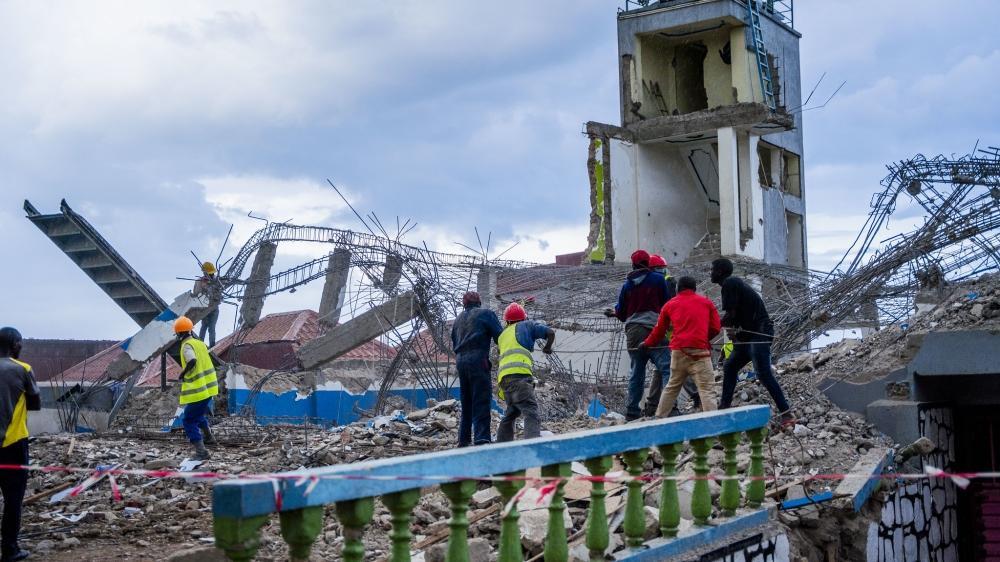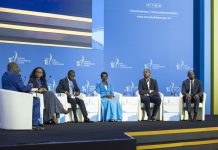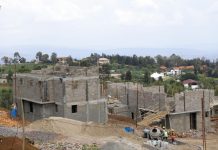Shyaka Kanuma
Africa-Press – Rwanda. News reports have been describing the details of new infrastructural projects – namely wider, multi-lane roads and highways interspersed with flyovers or overpasses – in Kigali. They are to be built with the aim of easing traffic congestion in ultra-busy junctions at places like Giporoso, Gisementi, Gishushu and Sonatubes.
These road expansion and improvement projects couldn’t have come at a better time.
Everyday citizens, people that have to put up with ever worsening traffic jams obviously will be thrilled by the news. They will be picturing how better traffic flows will improve the quality of their lives, and ultimately their very health itself.
Few things add to the stress of life than lengthy delays in vehicles in traffic gridlock, especially after a hard day’s work. In the case of, say, anxious parents trying to get home in time to do their duties by their children, it’s almost unbearable suffering. We aren’t even talking of a myriad other stress factors at play in these bumper-to-bumper traffic situations.
But then, as early as next year we will start to see an easing of the problem.
As they like to say on social media, “Rwanda works.”
Another thing to remark about these projects – with work on some of them already well underway – is how they underscore the way the words of politicians always are matched by action in Rwanda.
Remember the slogan of the ruling party during last year’s presidential campaigns? “Umuturage kwisonga” – the needs of the citizenry as priority. That was never an empty slogan.
The thing about politics in Rwanda as practiced by the ruling party is, it is never performative.
It’s never about whipping up crowds in frenzies of excitement with promises that, once the dust has settled, will be forgotten. Politics around here isn’t about the art of hoodwinking enough of the electorate into giving you their votes, then proceeding to ignore the public’s needs; and not only that but abusing their trust with complete impunity.
People in societies long-used to that sort of politics of course grow disillusioned with politics, and with politicians in general. They become cynical; a cynicism that then seeps throughout an entire country’s society, poisoning its body politic. The politician’s identity becomes that of a prolific liar, someone whose words you trust only at your peril.
Very thankfully we have been spared that phenomenon in the three decades the Rwandan Patriotic Front has led the government. Here, whether someone is still infected with the old, tribal-based ideologies, in their hearts they know they can trust the RPF. They know it will do as it says, every time.
In the case of the MRND “Parmehutu” secret adherents, they first saw this when the RPF party leadership proclaimed: Rwanda is for all Rwandans. No one will be segregated against. No one will be harassed on the basis of where they were born, or their ancestry.
And then the ruling party proceeded to activate these pledges. No one’s child was denied a place in school because of who they were. No one was asked where they came from before getting issued a government document: an ID card, a passport, a driver’s license. No one looks at the government – well, except those with an agenda to divide Rwandans – to claim anyone is excluded: be it in the executive branches, the legislature, or the judiciary, all state institutions.
In short, RPF did what it said it would: build a new Rwanda for all Rwandans. A place where the segregation and gross injustices that were the main fare in national life not too long ago, have no place now.
The upshot? Rwandans across the board trust their government. Fully. They trust their politicians, generally. And so, when the President says: “as a government we are going to do this, or that”, generally that’s a given. You can take it to the bank. It will happen.
Now that the local government; the administration of Kigali is actualizing ambitious projects to modernize transportation infrastructure in our capital there is a great sigh of relief. Soon the stresses of traffic congestion will become something of the past.
But that’s not all. Far from it.
The projects come with added bonuses. In further modernizing the city, enhancing the quality of life in the capital, all this then creates the knock-on effect of attracting more (foreign) investment to the country; of more conferences coming this way; of adding to Rwanda’s cachet as the place to take even more great sporting events to. And so on.
It’s all part of a seamless strategy, of enhancing services to nationals – umuturage kwisonga – but in the process enhancing the country’s attractiveness to foreigners, foreign organizations, and all sorts of international citizens: a virtuous cycle whose ultimate outcome is greater national economic growth.
Source: The New Times
For More News And Analysis About Rwanda Follow Africa-Press






